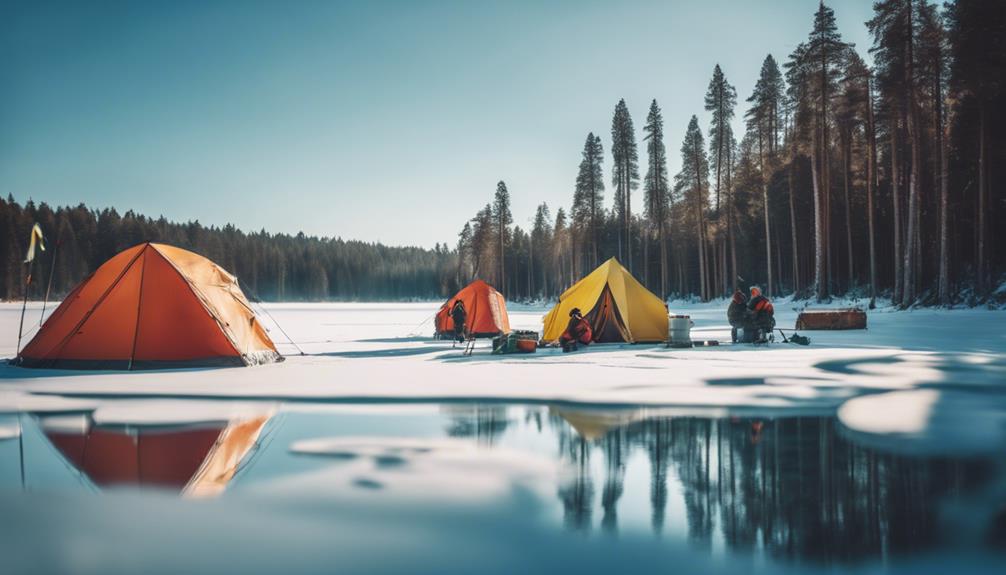Fishing enthusiasts often find themselves pondering the question, “When is fishing season over?” Understanding the timing and regulations surrounding fishing seasons is crucial for both recreational and professional anglers. This post aims to provide clarity on fishing seasons, factors influencing them, and tips for responsible fishing practices.
Understanding Fishing Seasons: What You Need to Know
Fishing seasons are designated periods during which specific species of fish can be caught legally. These seasons are set by local, state, and federal regulations to ensure sustainable fish populations and to protect breeding cycles. Regulatory bodies take into account various factors, including fish spawning periods, environmental conditions, and ecological balance. Knowing when fishing season is over for certain species can significantly affect your fishing plans.
Regional Variations in Fishing Seasons
One of the most important aspects of fishing seasons is that they vary widely depending on your geographical location. For example, northern states often have different fishing seasons compared to southern states due to climate differences. In colder regions, fishing seasons typically start later in the spring and end earlier in the fall. Conversely, warmer regions might have extended seasons, allowing for year-round fishing for certain species. Always check local regulations to know when fishing season is over in your area.
Common Fishing Species and Their Seasons
Different fish species have their own specific seasons. For instance, trout fishing usually begins in late spring and can extend into early fall, while bass fishing often peaks in the summer months. Some species, like salmon, have designated seasons based on their spawning cycles. Understanding these specific timelines will help you plan your fishing trips effectively. Additionally, some areas may have catch-and-release periods to protect certain species during their breeding seasons.
The Importance of Catch Limits and Regulations
In addition to knowing when fishing season is over, it’s vital to be aware of catch limits and regulations. Most regions enforce limits on how many fish you can catch in a single day to prevent overfishing. These regulations can vary not only by species but also by season. Ignoring these rules can lead to hefty fines and negatively impact local fish populations. Therefore, familiarize yourself with the regulations in your area to ensure responsible fishing.
How Weather Influences Fishing Seasons
Weather and environmental conditions play a significant role in determining when fishing season is over. For example, unseasonably warm winters can extend fishing seasons for some species, while harsh winters may shorten them. Additionally, water temperatures can influence fish behavior, affecting their feeding patterns and spawning cycles. Keeping an eye on weather forecasts can help you maximize your fishing trips during the optimal seasons.
Responsible Fishing Practices: Why They Matter
As an angler, practicing responsible fishing is crucial, especially as fishing seasons come to a close. This includes adhering to catch limits, using appropriate gear, and practicing catch-and-release techniques when necessary. By doing so, not only do you protect the fish populations, but you also contribute to the overall health of the ecosystems. When fishing season is over, consider engaging in conservation efforts or volunteering with local organizations dedicated to maintaining water quality and fish habitats.
Preparing for the End of Fishing Season
As fishing season draws to a close, it’s essential to prepare for the transition. This is an excellent time to reflect on your fishing experiences and plan for the next season. Consider organizing your fishing gear, cleaning your equipment, and taking inventory of what needs replacement or repair. Additionally, many anglers use this time to learn more about fishing techniques, attend workshops, or join local fishing clubs to stay engaged with the community.
Looking Ahead: The Future of Fishing Seasons
With ongoing changes in climate and environmental regulations, fishing seasons may continue to evolve. Being proactive about understanding these changes can help you adapt your fishing practices and ensure that you’re fishing responsibly. Stay informed about local regulations, participate in discussions about sustainable fishing, and advocate for practices that protect fish populations. As we look ahead, it’s crucial to foster a culture of conservation within the fishing community to ensure that future generations can enjoy fishing.
In conclusion, knowing when fishing season is over is just one piece of the puzzle for successful and sustainable fishing. By understanding regional variations, species-specific seasons, and the importance of responsible practices, you can enhance your fishing experience while contributing positively to the environment. Whether you’re casting your line in a local pond or embarking on a fishing trip to a remote destination, being informed and prepared will make your fishing adventures all the more rewarding.
